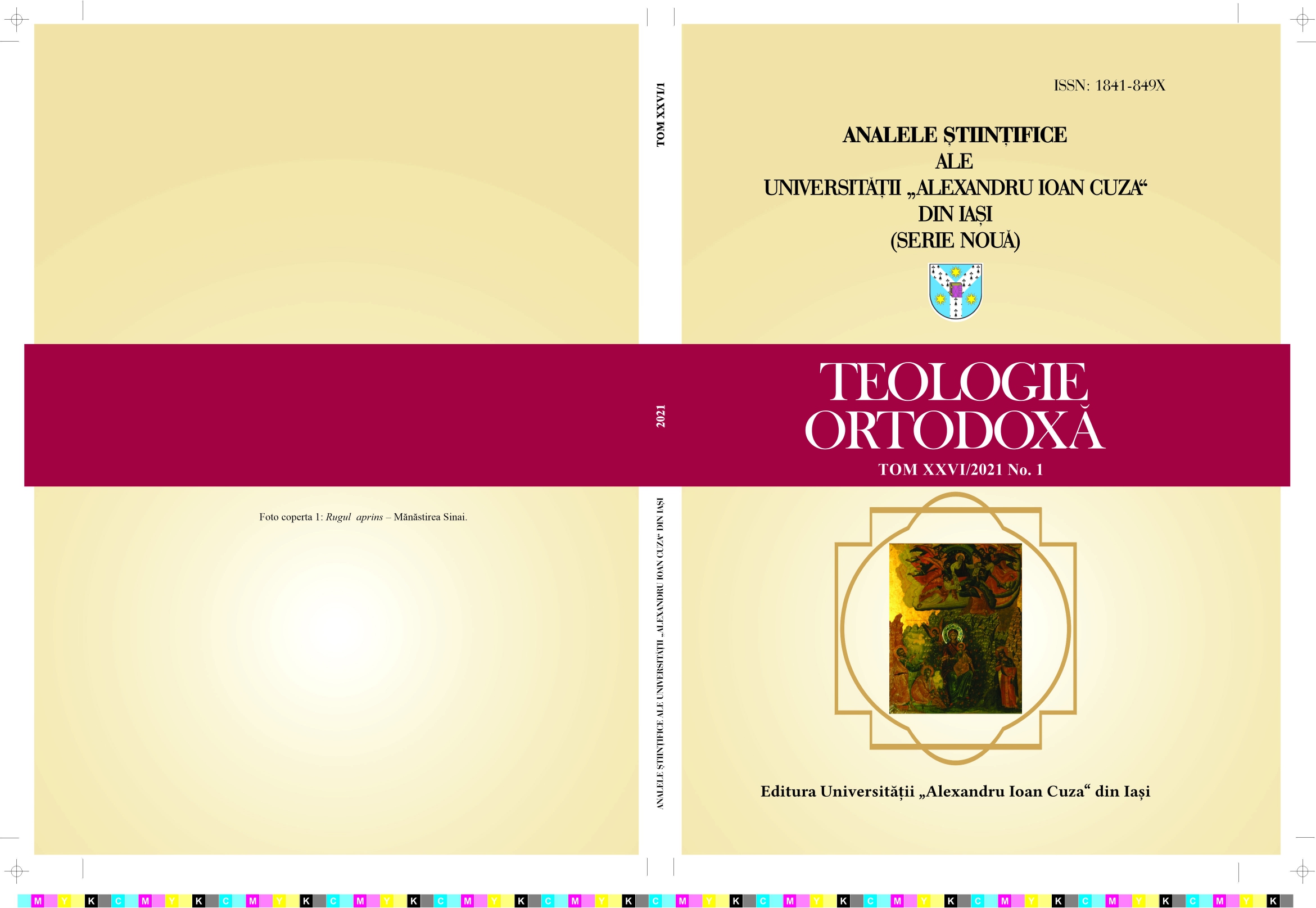Emanuel BUTA - When Does Human Life Begins and What Are the Spiritual Implications of Answering this Question
Emanuel BUTA
PhD Candidate “Dumitru Stăniloae” Faculty of Orthodox Theology, “Alexandru Ioan Cuza” University of Iaşi, Romania
Abstract:
In this article, we will present some theological and medical considerations regarding the moment when human life begins, analysing in parallel some arguments that come to distract this debate. From a medical point of view, there is the biologists’ consensus on when human life begins, a consensus that does not concern the sphere of subjective opinions, but of scientific evidence. In addition to this, the spiritual level has many implications when answering the question “When does human life begin?” which is often distorted. The debate on this subject should not be overshadowed by other global problems but, on the contrary, should be in our attention because it concerns the beginning of the life of each of us and our concern for future generations
Keywords:
human life, biologists' consensus, distorted arguments, spiritual implications
Bibliography:
- Beaufils, Dominique; Bobrinskoy, Fr. Boris; Breck, Fr. John; Clement, Oliver; Hiffler, Claude; Chryssavgism, Fr. Ioannis; Meletios, Mitropolitul; Peckstadt, Fr. Ignace; Roberti, Fr. Jean; Vergely, Bertrand. 2006. Bioetica și taina persoanei: perspective ortodoxe. Trad. Nicoleta Petuhov. București: Bizantină.
- Breck, Fr. John. 2001. Darul sacru al vieții. Cluj-Napoca: Patmos.
- Breck, John. 2009. Dorul de Dumnezeu. Meditații Ortodoxe despre Biblie, Etică și Liturghie. Trad. Cezar Login și Codruța Popovici. Cluj-Napoca: Patmos.
- Congourdeau, Marie-Helene. 2014. Embrionul și sufletul la sfinții Părinți și în izvoarele filozofice și medievale grecești (secolele VI i. Hr. – V d. Hr.). Trad. Maria Cornelia Ică jr. Sibiu: Deisis.
- Jacobs, Steven Andrew. 2018. Biologists' Consensus on 'When Life Begins'. University of Chicago – Department of Comparative Human Development, 25 iulie 2018, link available at http://dx.doi.org/10.2139/ssrn.3211703, accessed on 18 February 2021
- Kaczor, Christopher. 2015. The Ethics of Abortion. Women’s Rights, Human Life and the Question of Justice. Second Edition. New York and London: Routledge Taylor & Francis Group
- Kuhse, Helga; Singer, Peter. 1994. „Abortion and Contraception: The Moral Significance of Fertilization”. In: The Beginning of Human Life. Dordrecht: Kluwer Academic Publisher.
- Larchet, Jean-Claude. 2003. Etica procreației în învățătura Sfinților Părinților. Trad. Marinela Bojin. București: Sofia.
- Mantzaridis, Georgios. 2006. Morala creștină, II. Trad. Diacon Drd. Cornel Constantin Coman. București: Bizantină.
- Rochat, Philippe. 2003. „Five Levels of Self-Awareness as They Unfold Early in Life”. In: Conscious and Cognition, IV
- Singer, Peter. 1993. Practical Ethics. Cambridge: Cambridge University Press
- ˗ Stăniloae, Fr. Dumitru. 1996. Teologia Dogmatică Ortodoxă, vol. 1. București: EIBMBOR.
- Abortion Worldwide Report: 100 Countries, 1 Century, 1 Billion Babies, 25 ianuarie 2017, link available at https://www.frc.org/events/abortion-worldwide-report-100- countries-1-century-1-billion-babies, accessed on 07 June 2021.
- Andreea Boceli – un prunc, propus de medici să fie avortat, 25 February 2013, link available at https://ortodoxiatinerilor.ro/sexualitate/avortul/19268-andreeaboceli-avort, accessed on 21 May 2019.
- Fiano-Chesser, Cassy. 2019. Amazons’s Jeff Bezos, the richest man in the world, was born to a teen mom, 3 April 2019, link available at https://www.liveaction.org/news/richest-man-world-born-teenage-mother/, accessed on 21 May 2019.
- Steve Jobs – I wanted to meet my birth mother, link available at https://www.humancoalition.org/graphics/steve-jobs-i-wanted-to-meet-my-birthmother/, accessed on 21 May 2019.

